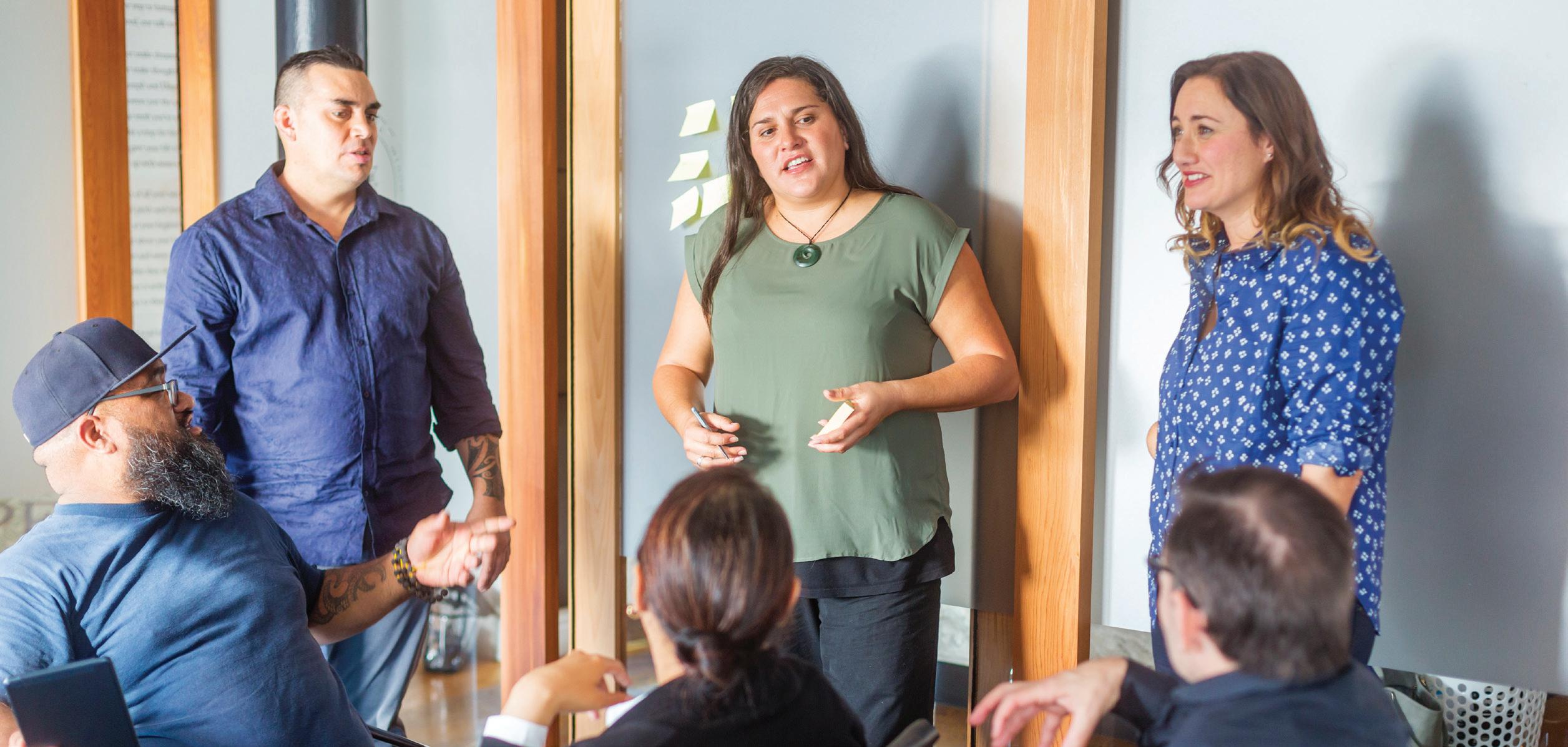
2 minute read
Building resilient communities
Building resilient communities one micro-subject at a time
Charles Sturt University is committed to the health of regional people and the health and resilience of its communities. Through a series of community workshops to identify needs, the University has developed a new innovative course to achieve positive and sustainable community outcomes, upending the need to enrol in a full program of study. In late 2018, Charles Sturt University brought together industry and community to take part in a series of Community Resilience and Recovery Co-creation Workshops and Future of Health and Human Services workshops. Associate Professor Jenny Kent in the Faculty of Business, Justice and Behavioural Sciences said the result was the Graduate Certificate in Community Leadership and Resilience, which launched this year. “What came back strongly in the Community Resilience and Recovery workshops was that we need connected, capable leaders with a strong understanding of communities and a passion for building resilience. “The strong feedback was that whatever program we were to develop, it would need to be delivered in smaller chunks of study, affordable, and include that right blend of theory and practical skills. “Through the co-creation process, the Graduate Certificate in Community Leadership and Resilience is a direct response to our communities’ needs. Designed for those working in grassroots roles right through to community leaders who want to drive successful community outcomes, this program is relevant, accessible, flexible and affordable.” Taking on board community feedback, the University has developed a suite of industry-aligned micro-subjects that can be taken as individual subjects, combined into a short course to round out a specific skillset or knowledge area, or stacked together to build to the Graduate Certificate in Community Leadership and Resilience. Covering areas such personal resilience, negotiating and managing conflict, leading change and motivating and influencing people, each micro-subject runs across an eight-week session and can be either two or four points, which require approximately 35 hours or 70 hours of study, respectively. The graduate certificate requires 32 points. While designed to be finished at your own pace, with planning and commitment it is possible to complete the graduate certificate in as little as one year. “We knew we couldn’t deliver was what needed in a traditional delivery model, so we’re doing something different by delivering micro-subjects that build towards a full graduate certificate qualification. “There has never been a more relevant time for this type of education than we are seeing right now. Times of major disaster and disruption are when people believe passionate, committed and effective leadership is the most critical element to recovery and ongoing development. “This graduate certificate has been designed around three key themes: Building Community, Building Relationships and Building Capable Leaders, which essentially cover the insights communities gave us on the skills, knowledge and attitudes that are needed in community leaders. “We are so grateful that people from our communities and relevant industries were so willing to share their time, knowledge and passion to help us gain valuable insights and help determine the direction we could take in developing our course offerings,” Jenny said.
More information
For more information on the Graduate Certificate in Community Leadership and Resilience
study.csu.edu.au/courses/business/ gc-community-leadership
For details on studying our single micro-subjects










